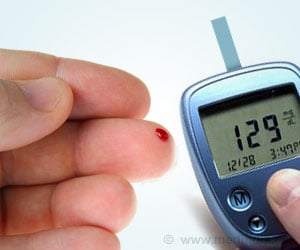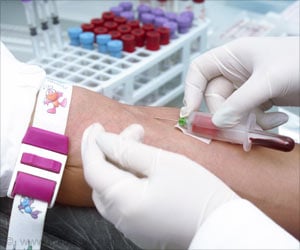Results from a single drop of blood are highly variable, and as many as six to nine drops must be combined to achieve consistent results.

TOP INSIGHT
Tests on six to nine drops of blood were needed to achieve consistent results. Researchers suggested that averaging the results of the droplet tests could produce results that were on par with venous blood tests.
The benchmark controls are used to gauge the accuracy of test results from the new technology under study, so the variation among the control data was a sign that something was amiss. What was not immediately clear was whether the readings resulted from a problem with the current experiments or actual variations in the amount of hemoglobin, platelets and white blood cells (WBC) in the different drops of blood.
Richards-Kortum and Bond designed a simple protocol to test whether there was actual variation, and if so, how much. They drew six successive 20-microliter droplets of blood from 11 donors. As an additional test to determine whether minimum droplet size might also affect the results, they drew 10 successive 10-microliter droplets from seven additional donors.
All droplets were drawn from the same fingerprick, and the researchers followed best practices in obtaining the droplets; the first drop was wiped away to remove contamination from disinfectants, and the finger was not squeezed or 'milked', which can lead to inaccurate results. For experimental controls, they use venipuncture, the standard of care in most hospitals, to draw tubes of blood from an arm vein.
Each 20-microliter droplet was analyzed with a hospital-grade blood analyzer for hemoglobin concentration, total WBC count, platelet count and three-part WBC differential, a test that measures the ratio of different types of white blood cells, including lymphocytes and granulocytes. Each 10-microliter droplet was tested for hemoglobin concentration with a popular point-of-care blood analyzer used in many clinics and blood centers.
Bond and Richards-Kortum found that hemoglobin content, platelet count and WBC count each varied significantly from drop to drop.
Bond and Richards-Kortum found that averaging the results of the droplet tests could produce results that were on par with venous blood tests, but tests on six to nine drops blood were needed to achieve consistent results.
Bond said, "Fingerprick blood tests can be accurate and they are an important tool for health care providers, particularly in point-of-care and low-resource settings. Our results show that people need to take care to administer fingerprick tests in a way that produces accurate results because accuracy in these tests is increasingly important for diagnosing conditions like anemia, infections and sickle-cell anemia, malaria, HIV and other diseases."
Source-Eurekalert
 MEDINDIA
MEDINDIA




 Email
Email







